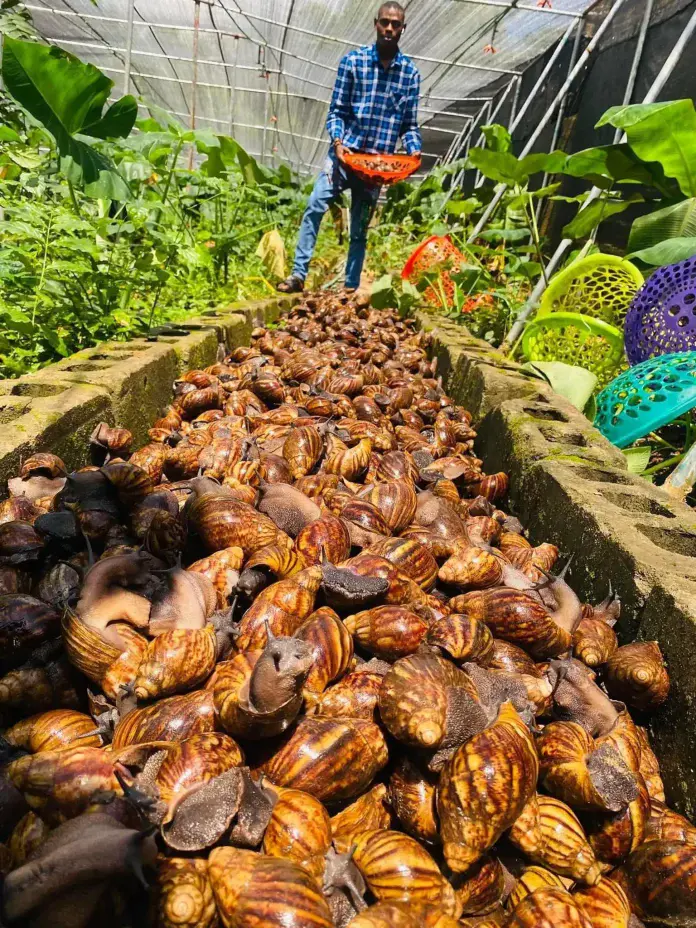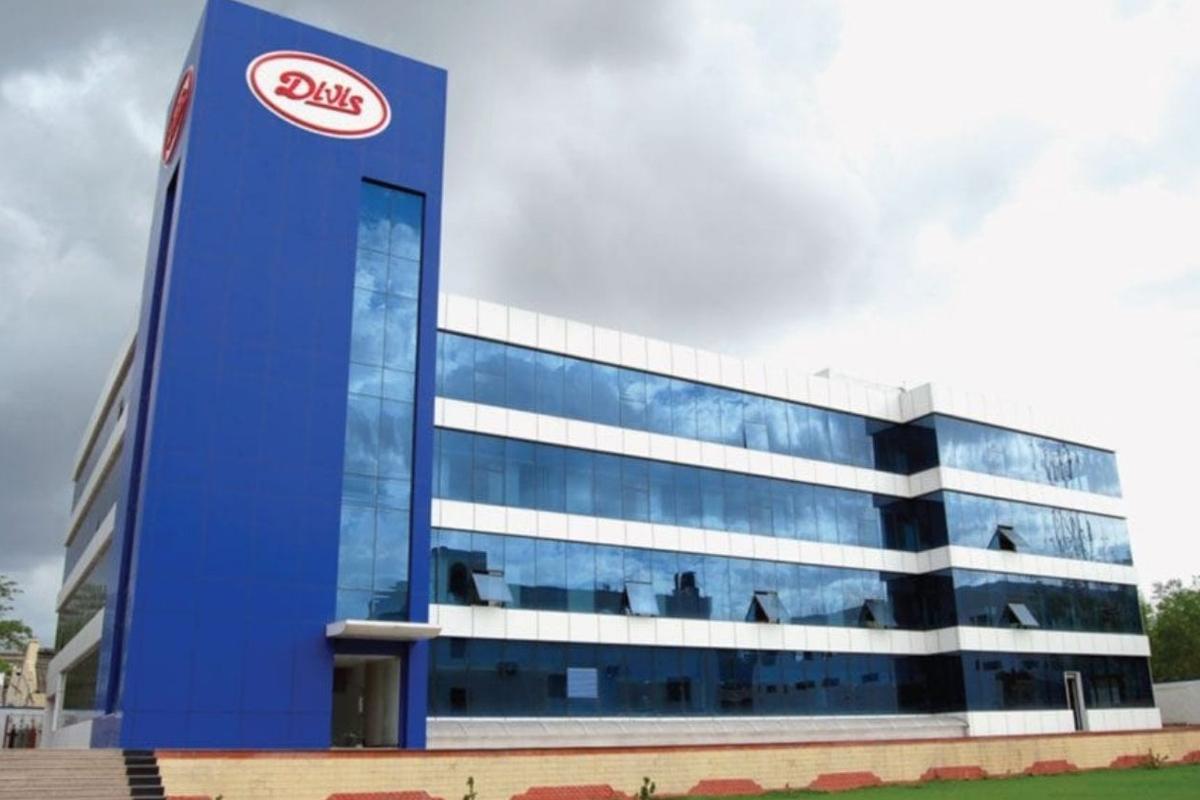Copyright ghanamma

Snail rearing, often overlooked in mainstream agriculture, is fast emerging as one of Ghana’s most promising green ventures, and the African Foundation for Climate Change and Sustainable Development is proving why. In just five months, AFCCSD’s greenhouse snail project, spearheaded by its Executive Director Francis Aforve, has transformed from a small pilot into a thriving enterprise producing more than 20,000 snails. The project, implemented through Climate Smart Solutions Limited, began in November 2024 with the construction of a single greenhouse for a private client. The farm was stocked with 1,000 point of lay Achatina snails in May 2025, a species known for its size, resilience, and market value. By October 2025, the snail population had surged to more than 20,000, prompting the client to commission three additional greenhouses to accommodate the growing stock. This is a practical example of how climate smart agriculture can transform livelihoods, Aforve stated. We created a controlled environment that mimics natural conditions while protecting the snails from predators, harsh weather, and disease. As a result, we achieved exponential growth with minimal losses. The AFCCSD greenhouse is not just a farm. It’s a model of innovation. The system integrates humidity and temperature regulation, sustainable feeding mechanisms, and biosecurity measures that promote rapid reproduction and healthy stock. According to Aforve, this model ensures consistent production while aligning with Ghana’s national goals of food security, climate resilience, and youth employment. Snail farming, or heliciculture, has long been underappreciated in Ghana’s agribusiness landscape. Yet its economic and environmental benefits are becoming undeniable. Snails require little space and feed, produce no waste pollution, and their meat is a high protein, low fat delicacy sought after both locally and internationally. The global demand for snails, particularly in Europe and Asia, has turned the species into a lucrative export commodity. France plays a central role in the growing international trade in snails, importing products and processing them for export to other European countries and North America, especially the United States, which imports hundreds of millions of dollars worth of snail meat annually. Other important markets include Germany, Belgium, Netherlands, Canada, Switzerland, Japan, Sweden, Austria, Denmark, and South Africa. Ghana currently imports significant quantities of snails from neighboring Ivory Coast despite having the natural conditions to produce them locally. The annual import of approximately 20,000 tons of snails into Ghana underscores the substantial demand for snails in the country. With the right investment in greenhouse rearing and training, experts say Ghana could easily become a leading exporter in the West African sub region. Aforve believes that projects like AFCCSD’s offer a replicable blueprint for agricultural innovation. As both a climate advocate and entrepreneur, I see this as a model for sustainable development. We’re not just farming snails. We’re building a resilient agricultural future, he said. The growth of Ghana’s snail farming industry extends beyond AFCCSD’s project. Over the last eight years, companies like Trisolace Farms, co founded by Felix Appiah Nyarko, have helped establish more than 200 large greenhouses dedicated to growing snails across the country. Nyarko explains that greenhouse packages cost between 36,000 cedis, approximately 3,000 dollars, to 200,000 cedis, approximately 17,000 dollars, while small boxes start from 700 cedis, about 58 dollars, and a pack of snails is 150 cedis, about 12.50 dollars. Snails are actually the most profitable farm animals per square meter, Nyarko noted. You can crop them in a small space and they’ll still be able to reproduce and make a lot of money for you. Snails are one of the few farm animals with both male and female sex organs, and they can save bodily fluid up to a year. Also, they don’t smell and neither do they make noise, so you can raise them in urban settings. Beyond profitability, the project offers lessons for Ghana’s youth. Snail farming requires low startup capital, minimal land, and manageable technical skills, making it ideal for young entrepreneurs entering agribusiness. The greenhouse setup, breeding techniques, and economic potential of snail farming explain why Ghanaian youth should be encouraged to venture into the sector, Aforve emphasized. He added that scaling such climate smart ventures could help tackle unemployment while positioning agriculture as a modern, tech driven career path. When you turn on one lever, it’s raining inside the whole greenhouse, making the system semi automated and not too labor intensive. Snail farming faces some challenges, including high mortality rates if not properly managed. However, it offers high returns, especially during the dry season when natural supply is limited. Beyond meat production, there is growing demand for snail slime in the cosmetics industry, where a kilo of dehydrated snail slime is reportedly worth more than gold. The Akans, who make up the largest ethnic group in Ghana, love to eat snails. They put snails in soups and sauces. Popular Ghanaian dishes like jollof rice with snails, banku with snail stew, yam chips with peppered snails, snail meat pies, and snail meat kebab demonstrate the cultural significance of this protein source. Major suppliers to international markets include Greece, Turkey, Romania, Algeria, Tunisia, as well as Taiwan, Thailand, and China. Most countries supply the European snail species Helix aspersa, H. pomatia, and H. lucorum, while Asian countries supply Achatina fulica. The snails are supplied fresh, frozen, or canned. The African species fetch about one third of the price of the European species. As Ghana intensifies its climate adaptation efforts, snail farming could play a vital role in diversifying the country’s agricultural base. With models like AFCCSD’s proving that small scale innovation can yield large scale impact, the humble snail may soon become a symbol of Africa’s next agribusiness boom. The model of snail rearing could be replicated across Ghana and West Africa. The sector demonstrates how climate smart agriculture can deliver economic opportunities while supporting environmental sustainability. Projects like AFCCSD’s offer practical pathways for young entrepreneurs to enter modern agriculture with relatively low barriers to entry compared to conventional livestock farming.



